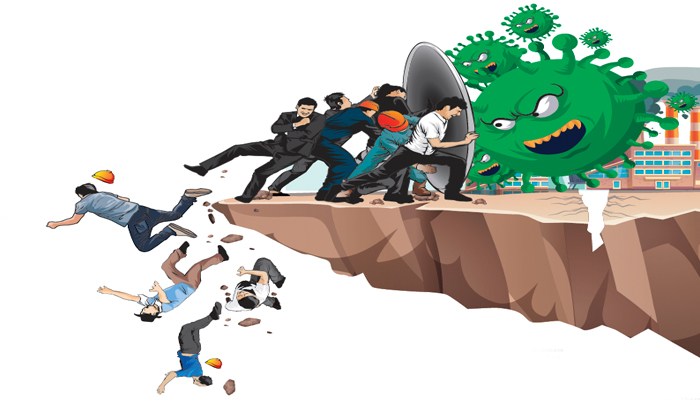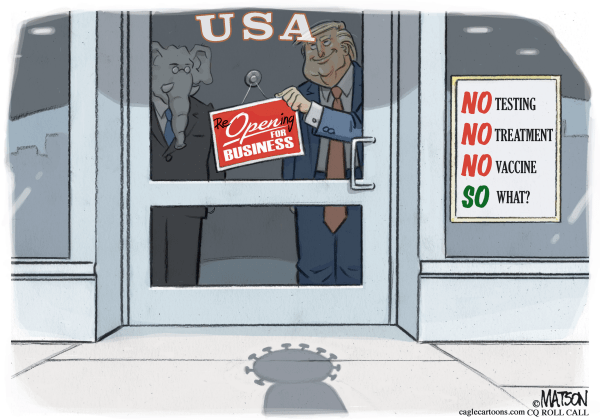
Bored?

User-Supported News Commentary Hosted by Craig Crawford


How do we calculate the costs of the coronavirus collateral damage as we reopen? Is it worth the cost to stay closed or to reopen? Who can be trusted to do the calculation?
On the fringes pushing the gas pedal to reopen are those at one end who are greedy heartless narcissists in well-protected towers and those on the other who are anxious starving unemployed about to lose whatever they call home.
Pumping the brakes or at least wanting to keep the social vehicle in low gear are the first responders, the polled majority and a few governors such as Cuomo, Hogan, Newsom, DeWine, Beshear among others.


Fools’ names and fools’ faces
are often seen in public places.